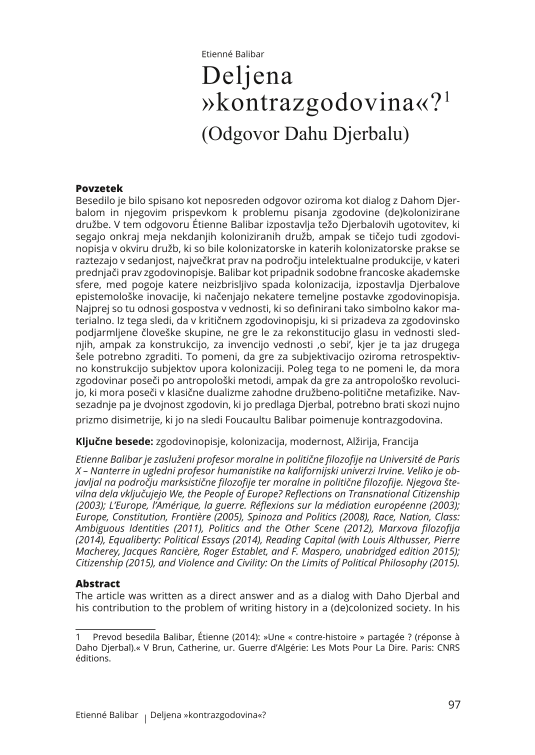The article was written as a direct answer and as a dialog with Daho Djerbal and his contribution to the problem of writing history in a (de)colonized society. In his answer, Étienne Balibar focuses on the importance of Djerbal‘s conclusions, which extend far beyond the borders of formerly colonized societies and are addressing the practice of writing of history also in colonial societies. The colonial practices of these extend to the present and do so often in the field of intellectual production, where history is taking the lead. As a member of the contemporary French academic sphere, undoubtedly conditioned by colonization, Balibar stresses Djerbal‘s epistemological innovations, which are working away some of the fundamental notions of history. First, there are the relations of domination within knowledge, which are both symbolic and material. Critical historical practice, which struggles for recognition of historically subjected societies, should not only attempt to reconstitute their voice and knowledge but should construct, invent a knowledge ‚about oneself‘, where this ‚self‘ needs yet to be built. This is the question of subjectivation and a task of retrospective construction of the subjects of resistance to colonization. Besides, this does not only mean that the historian needs to have to use an anthropological method, but that an anthropological revolution is in question since this action needs to intervene into the dualisms of the Western socio-political metaphysics. At last, the duality of the histories suggested by Djerbal needs to be read through the prism of a dissymmetry, which Balibar, following Foucault, names contra history.




